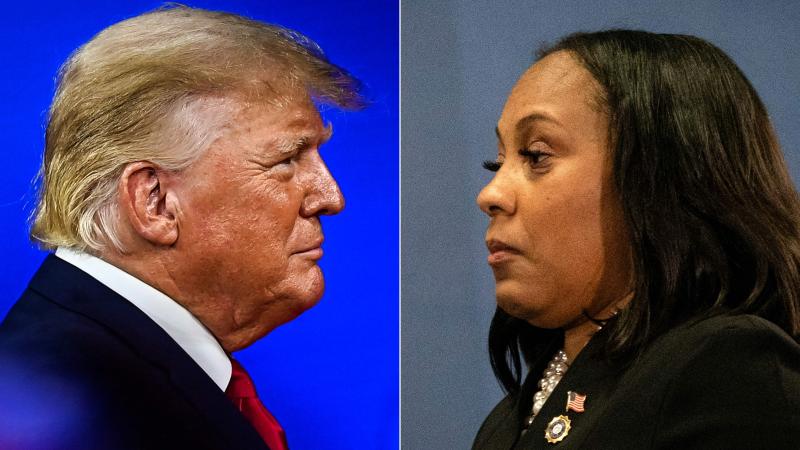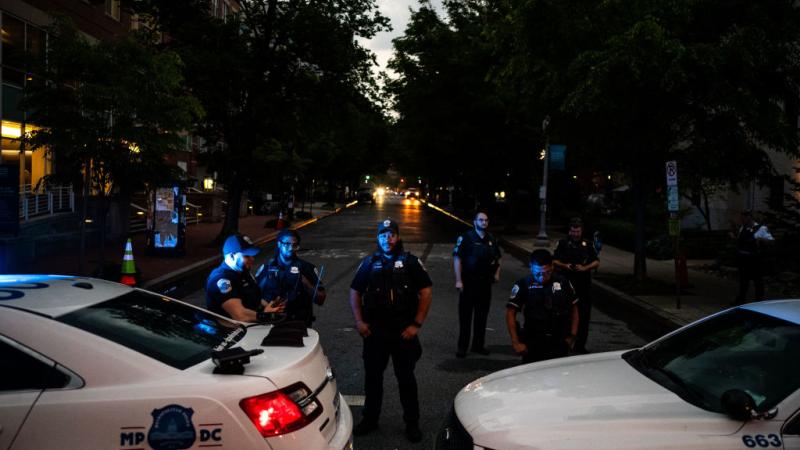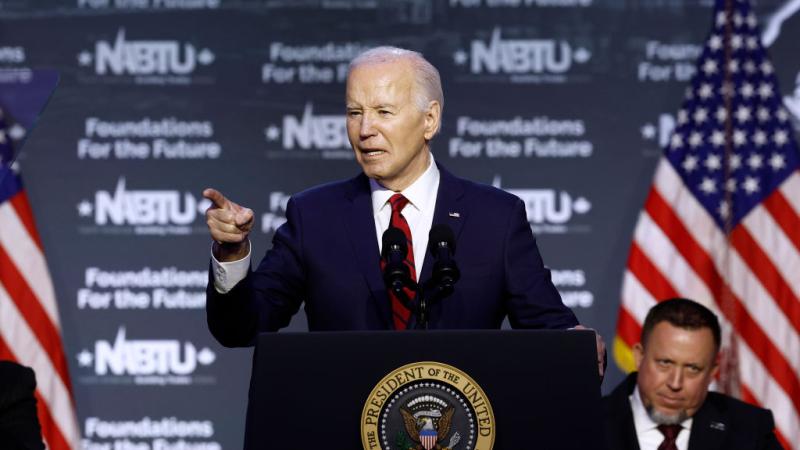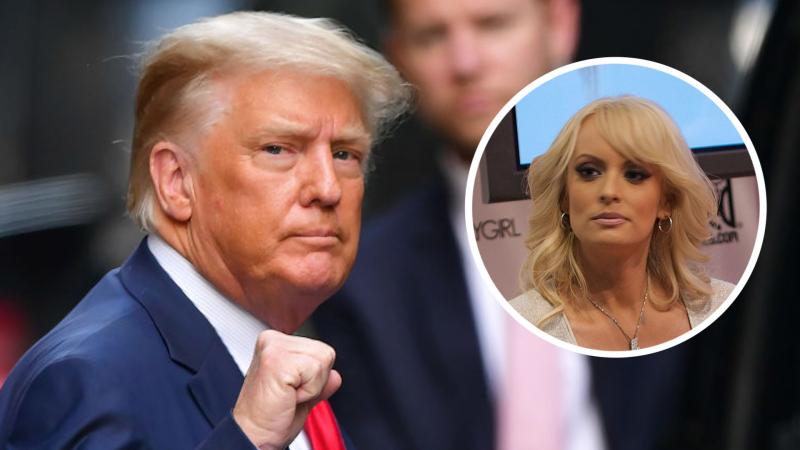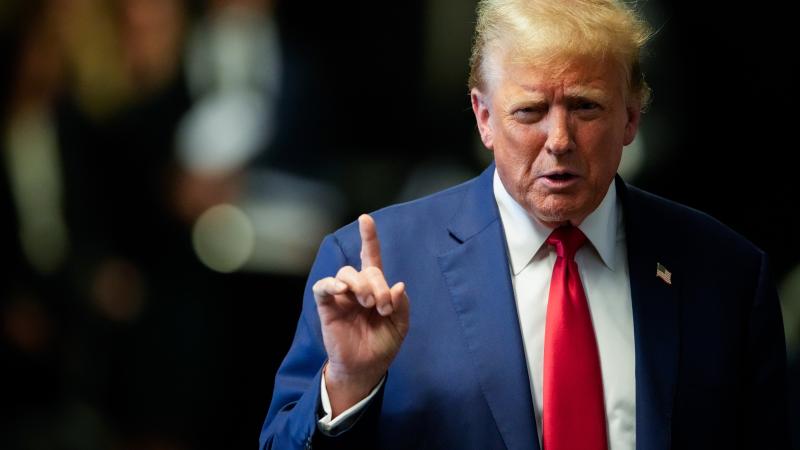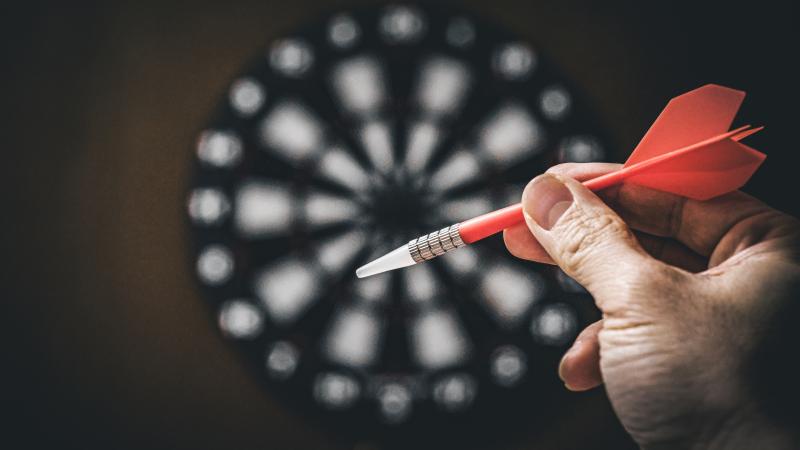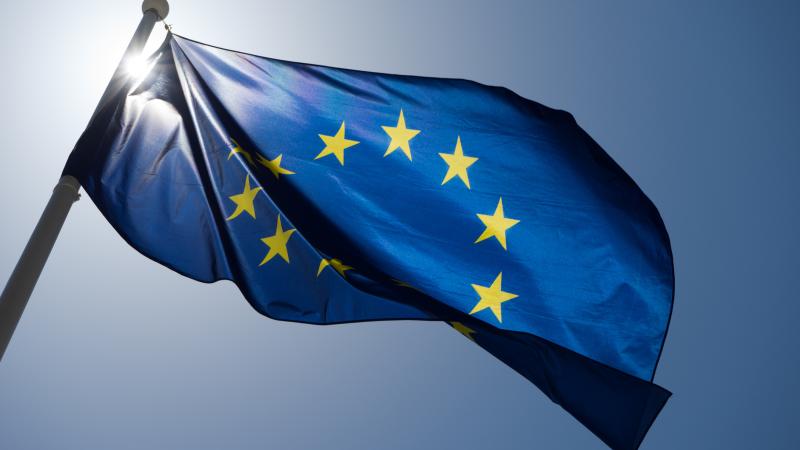DOJ’s refusal to turn over Hur tapes to Congress sets up a contempt fight
Congress has faced obstacles to its various investigations into the Biden Administration in its broad impeachment investigation.
The Department of Justice’s decision this week to refuse to turn over the audio tapes of President Joe Biden’s interview with Special Counsel Robert Hur could set up a new fight between the administration and Congress.
The refusal marks the second time the DOJ has declined to provide the audio tapes to Congress, though it has turned over the transcripts of the interview.
The department first refused to turn the tapes over earlier this month, citing insufficient justification and accusing the House Republicans of political motivations—concerns the DOJ reiterated in its letter this week to the Judiciary and Oversight Committees.
“We have repeatedly invited the Committees to identify how these audio recordings from law enforcement files would serve the purposes for which you say you want them,” Assistant Attorney General Carlos Uriarte wrote to congressional investigators.
“We have also repeatedly urged the Committees to avoid unnecessary conflict and to respect the public interest in the Department’s ability to conduct effective investigations by protecting sensitive law enforcement files. The Committees have repeatedly failed to explain your needs or to demonstrate respect for the Department’s law enforcement functions,” he added.
The DOJ argues that its “record of accommodation” towards the committee has been more than enough. So far, the department has provided two classified documents, the transcripts of the Special Counsel’s interview with President Biden, and correspondence related to the report.
“Despite our many requests, the Committees have not articulated a legitimate congressional need to obtain audio recordings from Mr. Hur’s investigation, let alone one that outweighs the Department’s strong interest in protecting the confidentiality of law enforcement files,” Uriarte wrote.
You can read the DOJ letter below:
The committees have criticized DOJ’s reasoning, arguing Executive Branch officials have no authority to determine what Congress “needs and does not need” for its oversight responsibilities.
“It’s curious the Biden Administration is refusing to release the audio of President Biden’s interview with the Special Counsel after releasing the transcript,” Chairman James Comer of the Oversight Committee posted to X after the DOJ originally refused to provide the tapes.
“Why shouldn’t the American people be able to hear the actual audio of his answers?” he asked. “The American people deserve transparency from their leaders, not obstruction.”
“We will respond to the Department of Justice," Comer vowed in a statement to Just the News on Thursday.
Holding any Justice Department official in contempt, let alone the Attorney General, will face obstacles. The last Attorney General to be held in contempt by Congress, Eric Holder, was able to avoid any consequences for ignoring a subpoena because his own department refused to enforce the measure, a common occurrence in cases where the opposing party controls the executive branch.
According to federal law promulgated in 1857 and reenacted in 1938, the failure to comply with a congressional subpoena is a criminal offense, and the relevant house of Congress can hold the offender in contempt and refer the matter to the DOJ for prosecution. This was the method employed recently in the cases of two former Trump Administration advisors, Steve Bannon and Peter Navarro.
However, in modern history, when a witness is found in contempt of congress under an administration of an opposing party, the DOJ has often asserted a right to exercise discretion about whether or not to prosecute and charges are rarely brought. Therefore, enforcing the contempt referral becomes virtually impossible.
Under the Obama Administration, when Attorney General Holder refused to comply with a House Oversight Committee subpoena to provide documents related to the “Fast and Furious” investigation, the committee held him in contempt and referred the matter to the DOJ. The DOJ refused to act on it citing prosecutorial discretion and eventually declined to challenge Holder's claim of executive privilege.
Aside from a civil enforcement through the courts, the committees have only one other avenue open for enforcing their subpoenas: inherent contempt powers.
According to the Congressional Research Service (CRS), the inherent contempt power permits each house to arrest and detain an individual who is found to be be obstructing Constitutionally-defined duties and responsibilities of the legislature, as the Supreme Court ruled in Marshall v. Gordon (1917) and reiterated in Eastland v. United States Servicemen's Fund in 1975.
The CRS notes that the Supreme Court has determined that “some means of compulsion [is] essential for Congress “to obtain what is needed.” When Congress finds an inquiry blocked by the withholding of information, or where the traditional process of negotiation and accommodation is considered inappropriate or unavailing, a subpoena—either for testimony or documents—may be used to compel compliance with congressional demands.”
The inherent contempt powers were last used in 1934 when the Senate arrested lawyer William MacCracken Jr., a former Assistant Secretary of Commerce, who was called to appear before Congress. The Supreme Court upheld Congress’ expansive power to enforce its own oversight capabilities when MacCracken challenged his arrest and detention.
In the present day, the use of the inherent contempt powers has largely fallen out of use. It is unclear how the Judiciary and Oversight Committees will proceed to enforce any contempt referral against Attorney General Garland for refusing to cooperate.
The House Republicans investigations into President Biden as part of its impeachment inquiry has faced several other roadblocks from the administration.
So far, President Biden has refused to answer questions from impeachment investigators about his knowledge or alleged role in his son’s foreign business dealings, has refused to turn over key documents, and declined to appear for testimony, stalling the probe.




